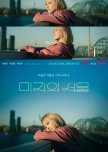Our Unwritten Seoul: A Quiet Tale of Unspoken Emotion, Healing, and Growth
Outstanding. That’s the only word that comes to mind after finishing Our Unwritten Seoul. This drama should be meant to be 16 episodes, and honestly, I wish it was. Not because it dragged—but because I wanted more. With its current 12-episode length, it still delivered something truly special, but you’ll find yourself wishing for those extra 4 episodes, just to sit with these characters a little longer.
This isn’t just a love story. It’s a deeply emotional, well-paced drama that touches on family, trauma, healing, and connection. Every character feels real, every moment feels earned, and it’s the kind of series that quietly builds up and then suddenly moves your heart all at once.
One thing I really appreciated is how they handled the timeline. Unlike many K-dramas that confuse you with sudden flashbacks using the same actors, Our Unwritten Seoul smartly cast different actors for the teenage roles. This made the past and present very easy to follow, and added so much clarity to the characters’ emotional growth.
Let’s talk characters:
Mi-rae: Park Bo-young delivers one of her best performances here. Mi-rae’s story is filled with pain, confusion, and strength, and her quiet suffering feels incredibly relatable. Every expression she gave felt genuine. For me, Mi-rae stood out the most, and her journey is unforgettable.
Mi-ji: Also played by Park Bo-young, Mi-ji is the bubbly, cheerful twin who hides her emotional burden under smiles. She reminded me a bit of Bong-Soon with her energy and expressions. It’s impressive how Park Bo-young played two completely different characters so convincingly. Mi-ji brings light to the screen, even in the heavy moments.
Ho-su: At first glance, his character may seem like he’s not developing much, but once you dig into his insecurities and his personal fears, you start to understand him. His silence hides a lot, and his perspective adds another layer to the drama. He doesn’t shine the same way the others do, but his role is essential.
Se-jin: The second male lead—and one major reason why I believe this drama needed 16 episodes. Se-jin’s story feels underdeveloped, and we don’t get enough time with him or his relationship with Mi-rae. If given more screen time, his character could’ve added so much more to the romantic and emotional narrative. What we do get is great—but it feels incomplete.
Supporting cast deserves a shout-out too:
Jang Young-nam as the twins’ mother brings complexity. Her inability to tell the difference between her daughters, even after all this time, was heartbreaking to watch.
Kim Sun-young, who plays Ho-su’s mother, was another standout. Through her, the drama shows just how much burden a mother carries without saying a word.
Im Chul-soo and Cha Mi-kyung also delivered strong, meaningful performances. Their characters may not be central, but their presence shaped the emotional landscape of this story beautifully.
Final thoughts:
If you’re looking for a top-tier K-drama that reminds you why you fell in love with K-dramas in the first place—this is it. It’s emotional, raw, and filled with silent truths. Our Unwritten Seoul doesn’t rely on big twists or clichés. It tells a human story that feels deeply personal. A story where emotion itself becomes the language, even when words are missing.
Until now, this is the best drama of 2025 for me. Quiet, powerful, and unforgettable.
This isn’t just a love story. It’s a deeply emotional, well-paced drama that touches on family, trauma, healing, and connection. Every character feels real, every moment feels earned, and it’s the kind of series that quietly builds up and then suddenly moves your heart all at once.
One thing I really appreciated is how they handled the timeline. Unlike many K-dramas that confuse you with sudden flashbacks using the same actors, Our Unwritten Seoul smartly cast different actors for the teenage roles. This made the past and present very easy to follow, and added so much clarity to the characters’ emotional growth.
Let’s talk characters:
Mi-rae: Park Bo-young delivers one of her best performances here. Mi-rae’s story is filled with pain, confusion, and strength, and her quiet suffering feels incredibly relatable. Every expression she gave felt genuine. For me, Mi-rae stood out the most, and her journey is unforgettable.
Mi-ji: Also played by Park Bo-young, Mi-ji is the bubbly, cheerful twin who hides her emotional burden under smiles. She reminded me a bit of Bong-Soon with her energy and expressions. It’s impressive how Park Bo-young played two completely different characters so convincingly. Mi-ji brings light to the screen, even in the heavy moments.
Ho-su: At first glance, his character may seem like he’s not developing much, but once you dig into his insecurities and his personal fears, you start to understand him. His silence hides a lot, and his perspective adds another layer to the drama. He doesn’t shine the same way the others do, but his role is essential.
Se-jin: The second male lead—and one major reason why I believe this drama needed 16 episodes. Se-jin’s story feels underdeveloped, and we don’t get enough time with him or his relationship with Mi-rae. If given more screen time, his character could’ve added so much more to the romantic and emotional narrative. What we do get is great—but it feels incomplete.
Supporting cast deserves a shout-out too:
Jang Young-nam as the twins’ mother brings complexity. Her inability to tell the difference between her daughters, even after all this time, was heartbreaking to watch.
Kim Sun-young, who plays Ho-su’s mother, was another standout. Through her, the drama shows just how much burden a mother carries without saying a word.
Im Chul-soo and Cha Mi-kyung also delivered strong, meaningful performances. Their characters may not be central, but their presence shaped the emotional landscape of this story beautifully.
Final thoughts:
If you’re looking for a top-tier K-drama that reminds you why you fell in love with K-dramas in the first place—this is it. It’s emotional, raw, and filled with silent truths. Our Unwritten Seoul doesn’t rely on big twists or clichés. It tells a human story that feels deeply personal. A story where emotion itself becomes the language, even when words are missing.
Until now, this is the best drama of 2025 for me. Quiet, powerful, and unforgettable.
Was this review helpful to you?





